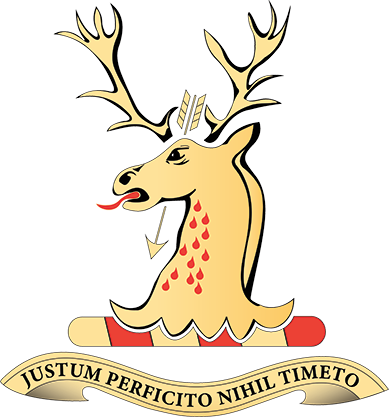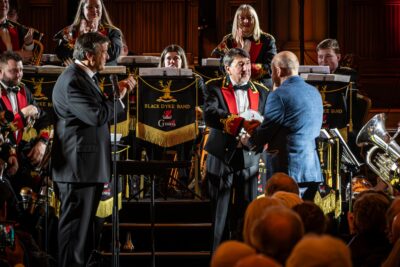History and Heritage
The Yorkshire village of Queenshead – later to become Queensberry – was the birthplace of a musical tradition that would eventually lead to the foundation of the Black Dyke Band as we know it today. It was there in 1816, in the heart of ‘mill country’, that Peter Wharton founded a brass and reed band. Playing French Horn in this band was one John Foster, the founder of Black Dyke Mills. It has been said, on many occasions, that this original group of musicians formed the genesis of the Black Dyke Band – however, this is not strictly the case. Although a musical thread runs from the 1816 band to the present day, there was undoubtedly some interruption at the beginning of this journey.
Peter Wharton’s original band went out of existence due to a lack of members. Some 17 years later, in 1833, a new band was formed – the ‘Queenshead Band’, and this grouping very likely included musicians from the former band. This ensemble reached its zenith from 1838 to 1843, at which time it consisted of 18 musicians. However, this band also ran into difficulties, until in 1855, the Halifax Courier of the 15th September reported that: “Queenshead Band formed early in the century by residents came into difficulties. John Foster & Son, having lately become acquainted with the depressed state of the band determined to make an effort themselves to raise it up again. Accordingly, they have purchased from that eminent maker, Mr. Joseph Higham, of Manchester, a new set of instruments which have this week been delivered to the band, which in future is to be denominated Black Dyke Mills Band. A new and talented leader, as well as several performers, have been added to the band which now comprises 18 musicians. Messrs. Fosters have provided for them a comfortable room in which they will meet for practising.”
So it was that the now world-famous Black Dyke Band was formed. In 1855 most of its musicians lived in Queensbury and worked at the mill, so a close link between the Band and the community was created, which remains to this day.
Jump to the 15th September 2005, and we see the Black Dyke Band proudly celebrating its 150th anniversary. Two of the many highlights that celebrated the occasion came with the publication of a book entitled ‘150 Golden Years – The History of Black Dyke Band’, by former resident conductor Dr. Roy Newsome, and the release of ‘Jewels in the Crown’, a triple CD that featured historical recordings of performances given by the band from as far back as 1903.
Some of the key moments from the Band’s history can be viewed on our timeline, showing you the breadth and scale of the Band’s achievements over the last century and a half.
Since that anniversary event, the band has continued to add to its exceptional list of artistic and competitive achievements – culminating in the successful application to the Heritage Lottery Fund to secure financial support for their ground-breaking Black Dyke Heritage Project, which you can read about on this site.
In 2021, despite the pandemic, the Band continues its work to promote the great musical tradition of the Brass Band. It retains its place at the very zenith of this musical tradition under the leadership of Professor Nicholas J. Childs, one of the leading figures in the worldwide brass community.
Despite our proud heritage, we always keep an eye to the future: encouraging new players, new music and new interpretations of old classics. We recognise and honour our past but want to remain a contemporary musical ensemble, committed to delivering the very highest quality musical experience for our listeners. We trust that this will continue for many years to come.

Ceramic Tankard with DAKS coat of Arms (No 2 of 2)
White Ceramic Tankard, (No 2 of a pair) With Coat of Arms and Motto in Gold, Blue and Red for […]

Photographic portrait of Major G H Willcocks 1899 – 1962
Frame Black and white photographic print of Major G.H. Willcocks MBE, MVO, ARCM, psm. Major Willcocks was a military musician. […]

Major Willcocks Baton of Honour
Wooden presentation box with fabric lining. Box contains a Conductors Baton presented to Major Willcocks in 1959. Metal plate with […]



